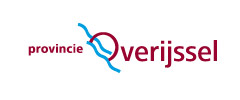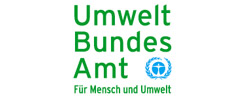Breast cancer cases rise 80 % since 1970s
It is the disease women fear more than any other, and its incidence is soaring. Breast cancer cases have hit a new record, official figures show, and the increase shows no sign of slowing.
02.10.2006 |Helen Lynn
Article by Jeremy Laurance, Health Editor
Published: 29 September 2006
A total of 36,939 women were diagnosed in England in 2004, an 81 per cent increase in incidence of the cancer since 1971, after statistical adjustment for the ageing of the population. Over the year, 41,000 cases were diagnosed in the UK.
Breast cancer is the commonest cancer in the UK, even though it principally affects only one gender (there are a few hundred cases each year in men). Lung cancer, the next most common which affects both sexes, was diagnosed in 30,408 individuals in 2004.
The relentless upward trend in breast cancer is driven by increasing prosperity and modern lifestyles, experts say. It accounts for one in three of all newly diagnosed cases of cancer in females.
The age-standardised incidence in 2004 was 120.8 per 100,000 population, the highest figure on record, up from 66.9 in 1971. The figures are in Cancer Registrations, the annual statistical report issued by the Office for National Statistics, published yesterday.
The charity Breast Cancer UK has demanded action to halt the rise in the disease. "We believe women have a right to know these frightening statistics and should be asking the Government what it is doing to tackle the causes and prevention of the disease."
One woman in nine now develops breast cancer but lifestyle factors, including diet, obesity and family size could account for only half of the increase, and exposure to pesticides and other carcinogens in the environment must be investigated, the charity said
Cancer is a disease of the elderly and most cancers, including breast cancer, are commoner in older age groups. But breast cancer is increasing in every age group. Among those aged 20 to 34, the disease, though rare, increased by 50 per cent in the three decades from 1971 to 2001. In the 45 to 49 age group it rose by 41 per cent over the same period. The biggest increases have been in the 50 to 64 age group, in which the incidence has more than doubled after introduction of breast-screening which detects tumours too small to be picked up by a doctor performing a clinical examination.
Breast-screening was introduced in 1990 but did not become established throughout the country until the mid-1990s. In 2004, it was extended to cover women up to the age of 70.
The rise in breast cancer, seen in all developed countries, is linked with exposure to the female hormone oestrogen, influenced by changes in reproduction and diet.
Improved nutrition has meant girls go through puberty and start their periods earlier and women reach the menopause later.
Economic progress has led to smaller families, delayed childbirth and less breastfeeding as women have gone out to work. Increased alcohol consumption, obesity and the use of hormone replacement therapy (HRT) have also contributed. Professor Sir Richard Peto, Britains foremost cancer epidemiologist, of the University of Oxford, said: "There has been a slow drift upwards since the 1950s , basically due to society becoming more prosperous. Breast cancer is roughly a disease of prosperity. The rise was much more rapid in Spain because their rate of [social] progress was quicker.
"Having fewer children before the age of 30, early menarche [first period], late menopause and being obese or overweight after menopause are all factors behind the increase.
"On top of that, there has been the increase due to HRT, though use of HRT has dropped sharply. Women are drinking more and that probably already has an appreciable effect. They are all minor factors but taken together they mean a general trend up."
Better diagnosis through screening and improved recording of cases in local cancer registries had also contributed to the increase, Professor Peto added. He dismissed as "rubbish" suggestions that exposure to pesticides or other chemicals was fuelling the disease. "There isn't any good evidence [for other causes] over and above changes in lifestyle and improvements in diagnosis and registration," he said.
Ruth Yates, head of statistical information at Cancer Research UK, said it was difficult to offer advice to women on how to avoid breast cancer.
"There isn't one thing women can do, such as giving up smoking [to avoid lung cancer]. You can control your weight, eat fresh fruit and vegetables and curb your drinking but it won't make a huge difference, though it will have an impact."
She added: "Where women do have a choice is over breastfeeding. In terms of influencing the reproductive factors, that is the most practical thing they can do. We don't want women to beat themselves up over things they can't do."
Risk factors
Earlier Menarche (first period).
Improved nutrition has seen the age of the first period fall from 16-17 a century ago to 12 to 13 today
Delayed Childbirth
Women are starting their families later and postponing childbirth, increasing the risk by 3 per cent for each year of delay
Less Breastfeeding
Breastfeeding is protective but the trend towards smaller families and a rise in the number of working mothers means the time spent breastfeeding has reduced
Smaller Families
Family sizes have reduced and the more children a woman has the lower her risk
Later Menopause
Each year that menopause is delayed increases the risk by 3 per cent
Hormone Replacement Therapy
Increases the risk by 66 per cent among current users compared with those who have never taken it. Use of HRT rose rapidly in the 1980s but has fallen sharply in recent years
Rising Obesity
Average body weights are rising and about 8 per cent of breast cancer may be attributable to obesity and overweight
Growing Alcohol Consumption
Drinking among women is increasing and the risk rises by 7 per cent for each drink consumed daily
High-Fat Diet
Studies have suggested a high-fat diet causes a small increase in risk
Rising Affluence
Breast cancer is commoner in better-off women, probably because of nutrition and later age at childbirth
































